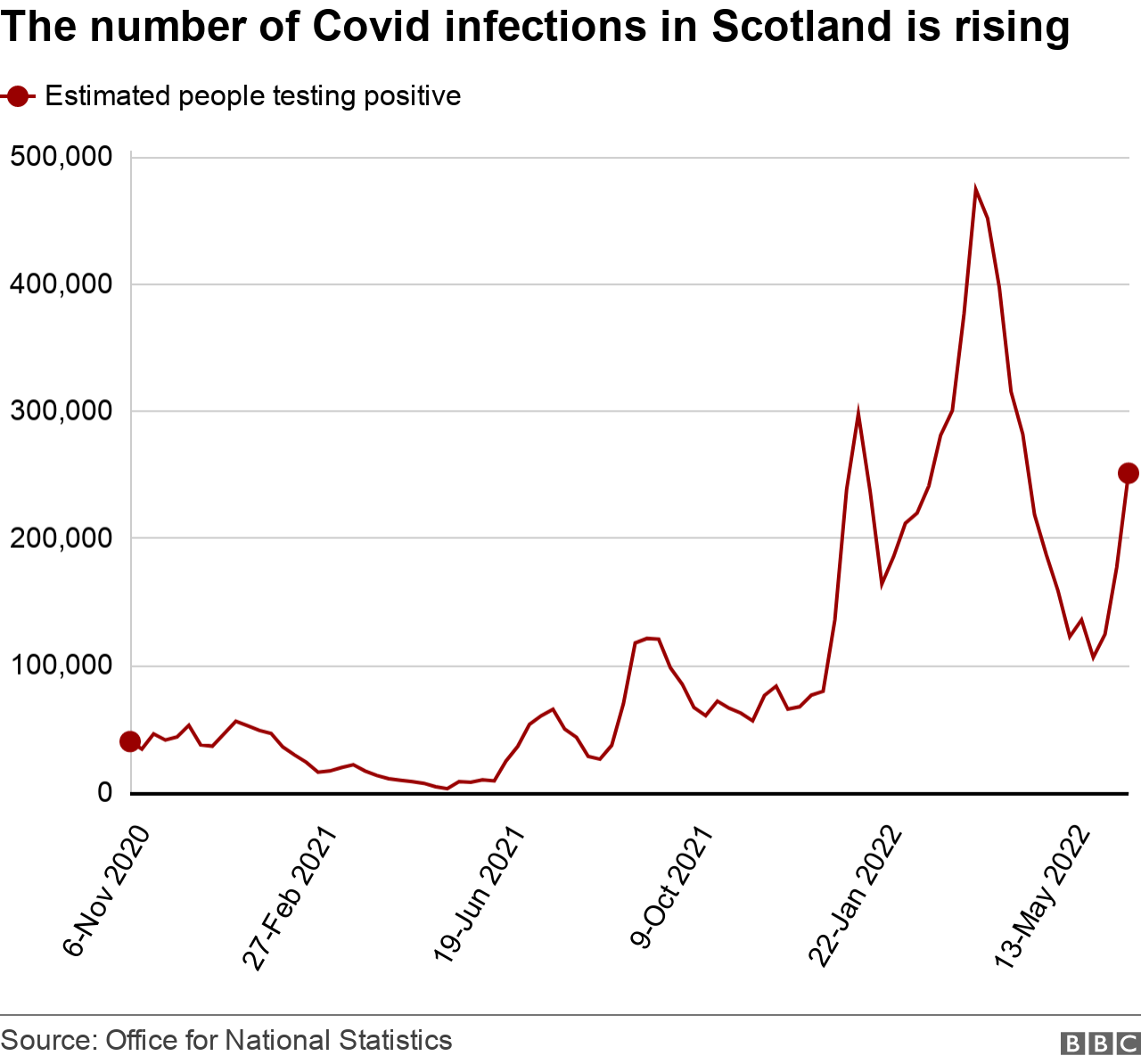Return of Covid restrictions unlikely, says Prof Leitch
- Published
Scotland's national clinical director does not think mandatory Covid restrictions will return
Mandatory coronavirus restrictions are unlikely to return despite a significant rise in cases, Scotland's national clinical director has said.
Prof Jason Leitch said there would be "small prices to pay" in order to ensure "normality" continues.
However, he added that he believed it would take a "dramatic" change for restrictions to be brought back.
The Office for National Statistics (ONS) estimates one in 20 people had the virus in the week ending 17 June.
The latest data estimates 250,700 people in private households in Scotland had Covid last week.
That is an increase on the previous week when about 176,900, or one in 30 people, had Covid.
First Minister Nicola Sturgeon has said it would be "sensible" for people to wear face coverings indoors, however there is no legal requirement to do so.
Speaking on BBC Scotland's The Sunday Show, Prof Leitch said he "honestly" did not believe restrictions would be reintroduced.
'Small prices to pay'
He said: "Something dramatic would have to happen to the virus.
"We've got fatigue from this. We're all a bit fed up. People are going back about their business.
"Glastonbury is on, TRNSMT is on next week. I remember us talking about TRNSMT a year ago where we were struggling to get it back on.
"All of those things are really, really important to get back."
But he warned the public that they should take small measures to ensure "normality" continues.
"Science, vaccination, staying off your work, face coverings are small prices to pay in order to get society back," he added.

Prof Leitch has just recovered from Covid-19 himself after he shared a positive lateral flow test on social media.
The exact number of people with the virus in Scotland is unknown since regular testing of the public ended in April.
Prof Leitch said that while we should be "concerned" about the rise in cases, the spike was "entirely predictable".
He said people should not "underreact" but added "let's not overreact either because vaccines, antivirals, we know what to do.
"We're able to live this in a different way that we could have before," he said.